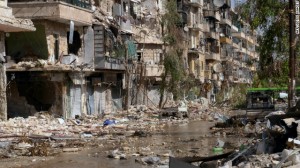By Margaret Janelle R. Hutchinson
Impunity Watch Reporter, South America
LA PAZ, Bolivia – Four masked men stormed a small, independent radio station, doused the equipment and host in gasoline, and set the station and the people in it ablaze this past Monday, October 29, 2012. The attack occurred while radio journalist Fernando Vidal was on the air; listeners heard gunshots and Vidal’s cries for help until the feed quit due to the fire.

Vidal, 70, is the owner and host of Radio Popular, a small FM station in the southern city of Yacuiba. The city, population 120,000, is located close to the Argentine border along a cocaine smuggling route and where trade in contraband is rampant. Vidal was interviewing two women about alleged corruption among customs police when the attack occurred.
Initially, this led some to posit that smugglers, incited by Vidal’s commentary, staged the attack. Esteban Farfan, also a host at Radio Popular and Vidal’s son-in-law, thinks the attack was politically motivated. Vidal, a former mayor of Yacuiba, uses his daily radio program as a platform to denounce corruption at every level of government.
“My father-in-law knows the identity of the people who ordered this act,” said Farfan. “There are political interests that want to silence the radio station. We will name names at the appropriate time.”
Police currently have four suspects in custody. According to Interior Minister Carlos Romero, one of the suspects was a mechanic, another a taxi driver, and none of the men had ever been in serious trouble with the law.
“There is surely someone else behind this and that’s what we’re investigating,” Romero added.
Farfan, however, remains skeptical. He sees the arrests of the attackers as the easy part of solving this case. He wants the mastermind behind the attack revealed and brought to justice.
“Vidal is an outspoken and respected journalist who made enemies with his opinions,” Farfan said.
A leftist, Vidal was once close to President Evo Morales, but the journalist broke off his support over what he described as the president’s turn to authoritarianism.
“He is a relentless critic of corruption,” Farfan said. “He calls out politicians who allegedly grow their personal bank accounts with state funds and routinely calls for investigations into corruption.”
Vidal is currently in serious but stable condition with second-degree burns to his face and arms. A station technician, Karen Arce, also suffered less serious burns in the attack. Everyone else was able to avoid the flames by jumping out windows.
The radio station borrowed equipment and was back on the air less than 24 hours after the attack.
Multiple international organizations condemned the attack. It was a “vicious and brazen” attack, the spokesman for the U.N. High Commissioner for Human Rights said.
A heavily-bandaged Vidal told reporters: “I deeply thank the solidarity of all my friends, colleagues, co-workers and journalists and ask them to keep up the work of bringing forth the evidence and revealing the truth.”
For further information, please see:
Digital Spy – Bolivian radio presenter set on fire while on air – 2 November 2012
The Guardian – Bolivian radio owner set on fire – 2 November 2012
CNN – Bolivian journalist’s family wants to know who was behind attack – 1 November 2012
ABC – Bolivia Radio Host Attacked on Air – 30 October 2012


